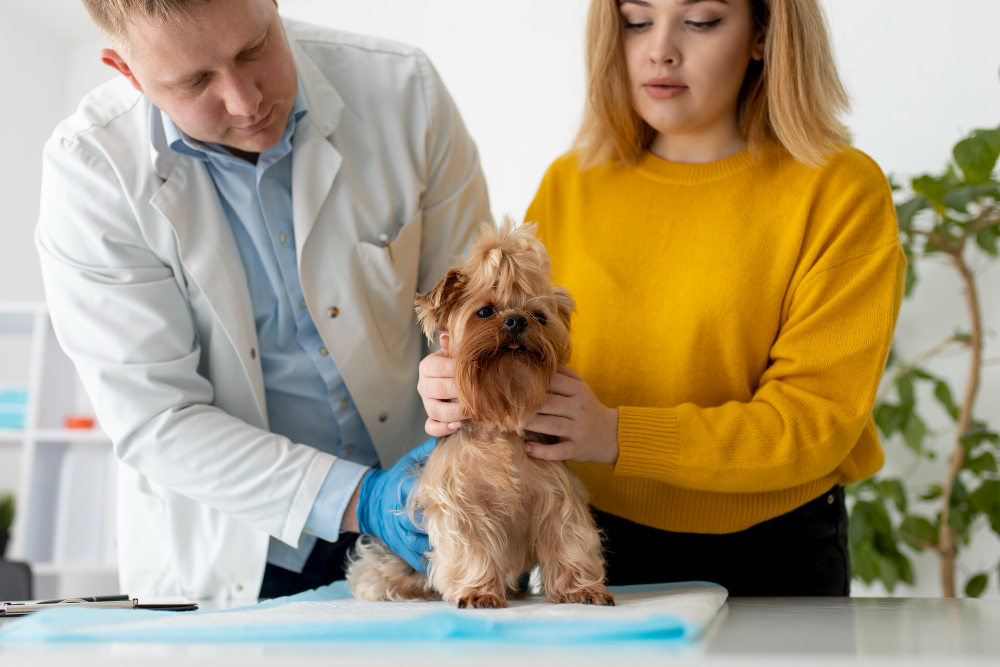The Essential Guide to Maintaining Digestive Health in Pets
[ad_1]
The Essential Guide to Maintaining Digestive Health in Pets
Pets, just like humans, require proper digestive care. A healthy digestive system ensures proper nutrient absorption, energy production, and waste elimination in animals. With this in mind, it is crucial for pet owners to prioritize their furry friends’ digestive health. In this guide, we will explore the essentials of maintaining optimal digestive health in pets, providing tips and insights along the way.
Understanding the Digestive System in Pets
Before diving into the tips for maintaining digestive health, it is important to understand the basic functioning of the digestive system in pets. The digestive system is responsible for breaking down food into nutrients and eliminating waste. In pets, the system consists of several parts, including the mouth, esophagus, stomach, small intestine, large intestine, and rectum.
Different animals have different digestive capabilities. For instance, carnivores like cats have simpler digestive systems geared towards processing meat, while herbivores like horses have longer digestive tracts for digesting fibrous plant material. Understanding the specific needs of your pet’s digestive system will help guide you in maintaining their digestive health.
Tips for Maintaining Digestive Health in Pets
1. Provide a balanced diet: One of the most crucial factors in maintaining digestive health is feeding your pet a balanced and nutritious diet. Consult with your veterinarian to determine the ideal diet for your pet’s specific needs. Ensure that their meals include the necessary proteins, carbohydrates, fats, vitamins, and minerals.
2. Avoid sudden dietary changes: Abrupt changes in diet can disrupt the balance of bacteria in your pet’s digestive system, leading to digestive upsets. If you plan to switch your pet’s food, do so gradually over a period of 7-10 days, mixing the new food with the current food in increasing proportions.
3. Proper hydration: Adequate water intake is crucial for maintaining proper digestion. Ensure that your pet always has access to fresh and clean water. In some cases, adding moisture to your pet’s diet through wet food or water additives may be necessary, especially for those prone to dehydration.
4. Monitor portion control: Overfeeding or underfeeding can lead to digestive issues in pets. Follow the feeding recommendations provided by your veterinarian and adjust portion sizes based on your pet’s age, size, and activity level. Regularly monitor your pet’s weight to ensure they are receiving appropriate amounts of food.
5. Regular exercise: Physical activity plays a significant role in maintaining digestive health. Engage your pet in regular exercise to stimulate digestion and promote overall well-being. A sedentary lifestyle can contribute to constipation and other digestive problems.
6. Probiotics and supplements: Probiotics promote the growth of beneficial bacteria in the digestive tract, improving digestion and supporting the immune system. Consult your veterinarian to determine if probiotic supplements are suitable for your pet. Additionally, some pets may require specific digestive enzyme supplements to aid in the digestion of certain nutrients.
Conclusion
By prioritizing your pet’s digestive health through a balanced diet, gradual dietary transitions, proper hydration, portion control, regular exercise, and the use of appropriate supplements, you can ensure that your furry friend maintains a healthy digestive system. A proactive approach to digestive health will not only enhance your pet’s overall well-being but also contribute to their longevity and happiness.
Frequently Asked Questions (FAQs)
Q: How can I tell if my pet has digestive issues?
A: Some common signs of digestive problems in pets include diarrhea, vomiting, excessive flatulence, constipation, weight loss, and a lack of appetite. If you notice any of these symptoms, it is essential to consult with your veterinarian.
Q: What should I do if my pet experiences digestive upset?
A: If your pet experiences digestive upset, such as vomiting or diarrhea, it is recommended to temporarily withhold food for 12-24 hours to allow their system to settle. Provide plenty of fresh water, and if the symptoms persist or worsen, contact your veterinarian for further guidance.
Q: Are there any specific foods that can improve my pet’s digestive health?
A: While a balanced diet is crucial, there are certain foods that are known to be beneficial for digestive health, such as pumpkin, yogurt, and easily digestible proteins like boiled chicken or fish. However, it is important to consult with your veterinarian before making any dietary changes.
Q: Can stress affect my pet’s digestive health?
A: Yes, stress can contribute to digestive issues in pets. Changes in routine, travel, or environmental factors can cause stress and disrupt the balance of bacteria in the digestive system. Minimizing stress and providing a calm environment can help maintain a healthy digestive tract.
[ad_2]

